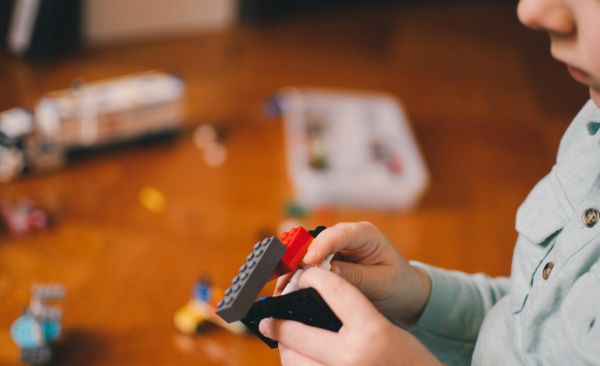By: Shawn English, with ChatGPT (-3.5), Open AI {https://openai.com}
If you’re searching for information about therapy for neurodivergent kids, you might find that providing therapy for non-neurotypical children present a significant challenge for parents, caregivers, and practitioners alike. With conditions such as autism spectrum disorder (ASD), attention deficit hyperactivity disorder (ADHD), sensory processing disorder (SPD), and other neurodevelopmental differences, it’s crucial to understand the most effective therapeutic approaches that can be used for the unique needs of each of these individuals.
This blog dives into various therapeutic techniques, their strengths and weaknesses, and the factors to consider when determining the best therapy for non-neurotypical children.
Understanding Non-Neurotypical Children:
Before going into therapeutic interventions, it’s essential to understand the range of challenges non-neurotypical children face. These challenges often include social, emotional, cognitive, and behavioral restraints, impacting their ability to communicate, regulate emotions, form relationships, and participate in daily activities. These children also may have sensory sensitivities, repetitive behaviors, impulsivity, and difficulties with attention and executive functioning.
Factors Influencing Selection of Therapy for Neurodivergent Kids:
Selecting the most appropriate therapy for non-neurotypical children requires careful consideration of several factors, including individual strengths and weaknesses, the severity of symptoms, family dynamics, and the child’s preferences.
1. Applied Behavior Analysis (ABA):
Applied Behavior Analysis (ABA) is a therapeutic approach based on the principles of behaviorism, focusing on observable behaviors and their environmental determinants. It is widely recognized for its effectiveness in addressing behavioral challenges in non-neurotypical children, particularly those with Autism Spectrum Disorder (ASD). ABA uses systematic strategies to teach and reinforce desired behaviors while reducing the undesired ones.
This approach often involves breaking down complex skills into smaller, manageable steps, and using positive reinforcement to encourage desired behaviors.
Critics of ABA have raised concerns about the requirement for compliance, as well as the potential for causing unexpected stress or harm, particularly when implemented without regard for individual differences and preferences. However, ABA practices prioritize the principles of choice, autonomy, and meaningful engagement, aiming to enhance the overall quality of life for individuals with neurodevelopmental differences.
2. Occupational Therapy (OT):
Occupational Therapy (OT) is a therapeutic approach focused on a child’s ability to participate in daily activities, or “occupations,” that are meaningful and essential to their life. For non-neurotypical children, OT interventions often target sensory processing difficulties, motor coordination issues, self-care skills, and environmental adaptations.
Through a combination of sensory therapy, fine and gross motor activities, and environmental modifications, occupational therapists help children develop the foundational skills necessary for independent functioning and participation in various aspects of life.
One of the key principles of OT is the use of a client-centered approach, which involves collaborating with the child and their family to identify goals, interests, and priorities for intervention. OT interventions are highly individualized and may include sensory-based activities, therapeutic exercises, assistive technology, and adaptive equipment to support the child’s unique needs.
By addressing sensory sensitivities, motor challenges, and self-care deficits, OT creates increased independence, confidence, and overall well-being in non-neurotypical children.
3. Speech and Language Therapy:
Speech and Language Therapy focuses on improving communication skills, including expressive and receptive language, articulation, and social communication, in non-neurotypical children. Many individuals with neurodevelopmental differences, such as ASD or ADHD, experience challenges with speech, language comprehension, and social interaction, which can significantly impact their ability to communicate effectively with others.
Speech and language therapists use a variety of techniques and interventions to address these communication difficulties, including:
– Augmentative and Alternative Communication (AAC) systems: AAC encompasses a range of tools and strategies, such as picture communication boards, speech-generating devices, and sign language, to support individuals with limited verbal communication abilities.
– Social skills training: Therapists create structured activities, role-playing scenarios, and group interactions to teach non-neurotypical children essential social communication skills, such as turn-taking and understanding others perspectives.
– Visual supports and schedules: Visual supports, such as visual schedules, cue cards, and social stories, help non-neurotypical children understand and navigate social situations, routines, and expectations more effectively.
4. Play Therapy for Neurodivergent kids:
Play Therapy provides a non-intrusive way for non-neurotypical children to express themselves, process emotions, and learn new skills. Play therapists create a safe and nurturing environment where children can engage in imaginative play, sensory exploration, and symbolic expression, allowing them to communicate and explore their thoughts, feelings, and experiences in a natural and spontaneous way.
Read more about play therapy:
Play therapy techniques may include:
– Therapeutic play materials: Therapists provide a wide range of play materials, such as toys, art supplies, and sensory materials, to encourage exploration, creativity, and self-expression.
– Play-based interventions: Therapists may incorporate various play-based interventions, such as sand tray therapy, puppet play, or storytelling, to address specific emotional, social, or behavioral challenges in non-neurotypical children.
Through the therapeutic use of play, children learn to regulate their emotions, develop problem-solving skills, practice social interaction, and build self-esteem and resilience.
5. Relationship-Based Therapies:
Relationship-based therapies, such as Floortime (DIR/Floortime) and Pivotal Response Treatment (PRT), focus on enhancing social-emotional connections between children and their caregivers. These therapies recognize the importance of secure relationships in promoting healthy development and aim to strengthen the parent-child bond through playful interactions, shared engagement.
Floortime (DIR/Floortime) emphasizes following the child’s lead, joining in their play, and building interactions to promote social communication, problem-solving, and emotional regulation skills. Pivotal Response Treatment (PRT) targets important areas of development, such as motivation, initiation, self-regulation, and socialization, through natural teaching strategies and reinforcement of child-initiated behaviors.
Considerations for Therapy Implementation:
 While each therapeutic approach offers distinct benefits, it’s essential to consider the individualized needs and preferences of non-neurotypical children when creating plans. Additionally, ongoing assessment, progress monitoring, and flexibility in intervention strategies are essential for adapting to the child’s evolving needs and maximizing therapeutic outcomes.
While each therapeutic approach offers distinct benefits, it’s essential to consider the individualized needs and preferences of non-neurotypical children when creating plans. Additionally, ongoing assessment, progress monitoring, and flexibility in intervention strategies are essential for adapting to the child’s evolving needs and maximizing therapeutic outcomes.
Choosing the most appropriate therapy for non-neurotypical children requires careful consideration of various factors, including the child’s strengths, challenges, preferences, and the available resources. While no single therapeutic approach is always going to be completely effective, a combination of evidence-based practices for the individual’s needs offers the best chance for progress and improved quality of life. By using collaboration, empathy, and empowerment, therapeutic interventions can help non-neurotypical children thrive and reach their full potential in diverse life domains.
Get options for your Therapy for Neurodivergent Kids/Non-Neurotypical Child in Boulder, CO
Empower your child’s growth and management of their uniqueness with our team of trained therapists can provide you with the support to help you and your family and your children navigate their adaptation as they grow.
- Contact our therapy center to request an appointment.
- Learn more about our therapists and play therapy
- Find the right child therapy option for your child.



